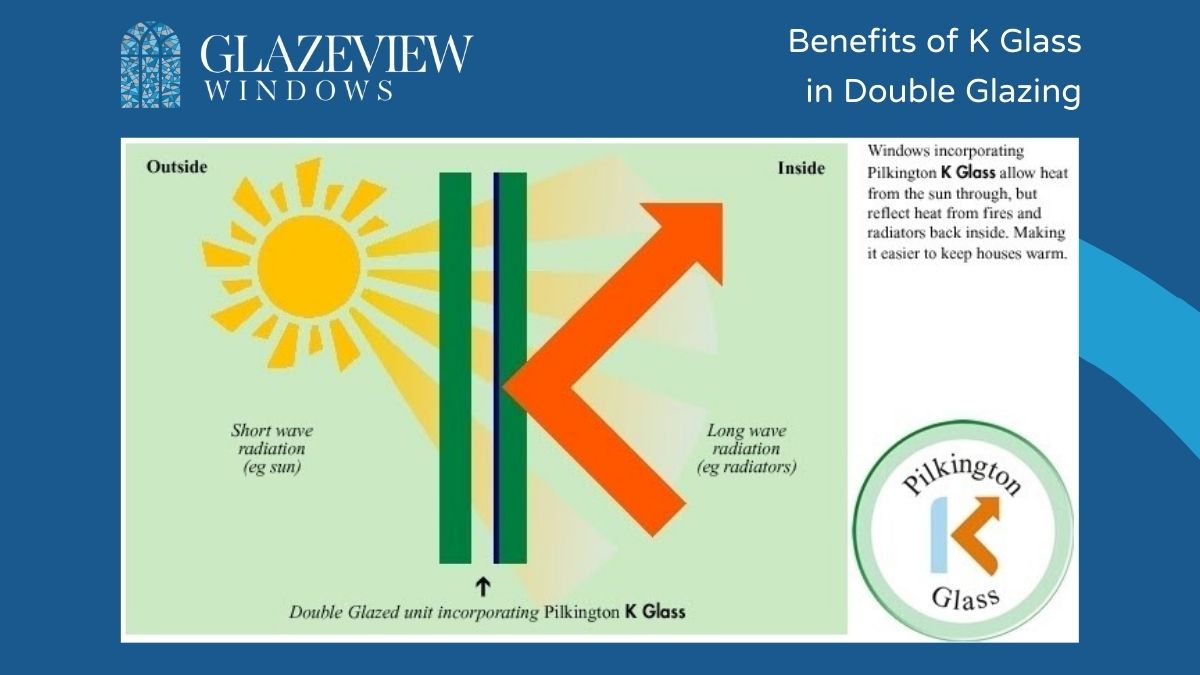Understanding K Glass, Soft Coat, and Argon Gas in Double Glazed Units in the UK
Double glazing has become a popular choice for homeowners in the UK, primarily due to its energy efficiency, noise reduction, and enhanced comfort. Among the various components contributing to the effectiveness of double-glazed units (DGUs), K Glass, soft coat, and argon gas play significant roles. The Benefits of K Glass in Double Glazing include improved heat retention, reduced energy bills, and better insulation. This blog will delve into these elements, explaining their benefits and how they work together to enhance double glazing performance.
What is K Glass?
K glass is low-emissive (low-E) glass designed to minimise heat escape from a building. Its special coating reflects heat into the room while allowing natural light to enter, making K glass an excellent choice for UK homeowners looking to improve energy efficiency.
Benefits of K Glass:
1. Energy Efficiency: K glass reduces heating costs by retaining warmth, making homes more energy-efficient.
2. UV Protection: The coating also blocks harmful UV rays, protecting furnishings and reducing fading.
3. Comfort: K glass enhances overall comfort by maintaining a consistent indoor temperature.
What is Soft Coat Glass?
Soft-coated glass is another type of Low-E glass, distinct from hard-coated glass. It is produced by applying a thin metallic oxide layer to the glass surface. This coating is used in a controlled environment, creating a more effective thermal barrier.
Benefits of Soft Coat Glass:
1. Superior Insulation: Soft-coated glass offers better thermal performance than hard-coated glass, keeping homes warmer in winter and cooler in summer.
2. Clarity and Aesthetics: It provides better light transmission and clarity, allowing for brighter interiors without compromising insulation.
3. Condensation Resistance: Its thermal properties reduce condensation, minimising essential dampness issues.
The Role of Argon Gas
In double-glazed units, argon gas is commonly used to fill the space between the two glass panes. Argon is an inert gas denser than air, providing an additional insulation layer.
Benefits of Argon Gas:
1. Enhanced Insulation: Argon gas significantly reduces heat transfer, improving window thermal performance.
2. Soundproofing: Argon density also aids in sound insulation, making homes quieter.
3. Longevity: As an inert gas, argon does not react with other elements, contributing to the longevity of the double-glazed unit.
How They Work Together
K glass, soft coat glass, and argon gas create a highly effective double-glazed unit. The K and soft coat glass reflect and retain heat, while the argon gas further minimises loss, resulting in significant energy savings. This combination is particularly beneficial in the UK climate, where maintaining warmth during the colder months is essential.
Investing in double-glazed units featuring K glass, soft coat glass, and argon gas can dramatically enhance energy efficiency and comfort. As energy costs continue to rise, these technologies offer practical solutions for homeowners looking to reduce their environmental impact while enjoying a cozy living space. Exploring these options could lead to significant long-term benefits if you consider upgrading your windows. Please explore the rest of our website to learn more about our services or double glazing installation. Similarly, please follow our social media to get up-to-date information and offers. Contact us if you would like us to provide a quote for your next window installation.




